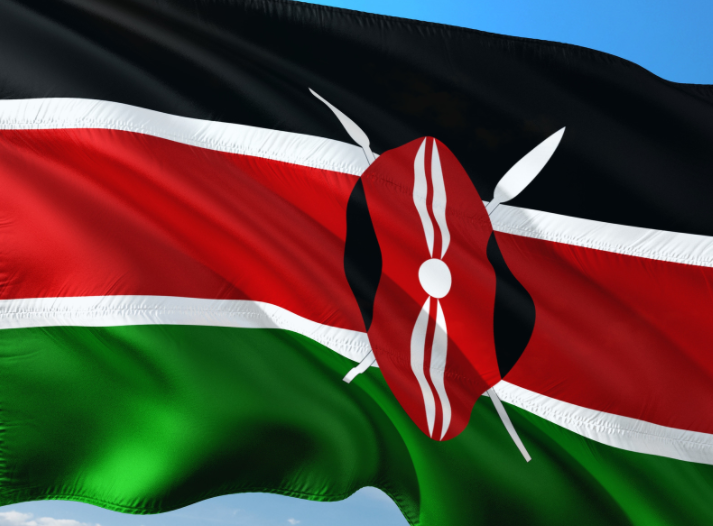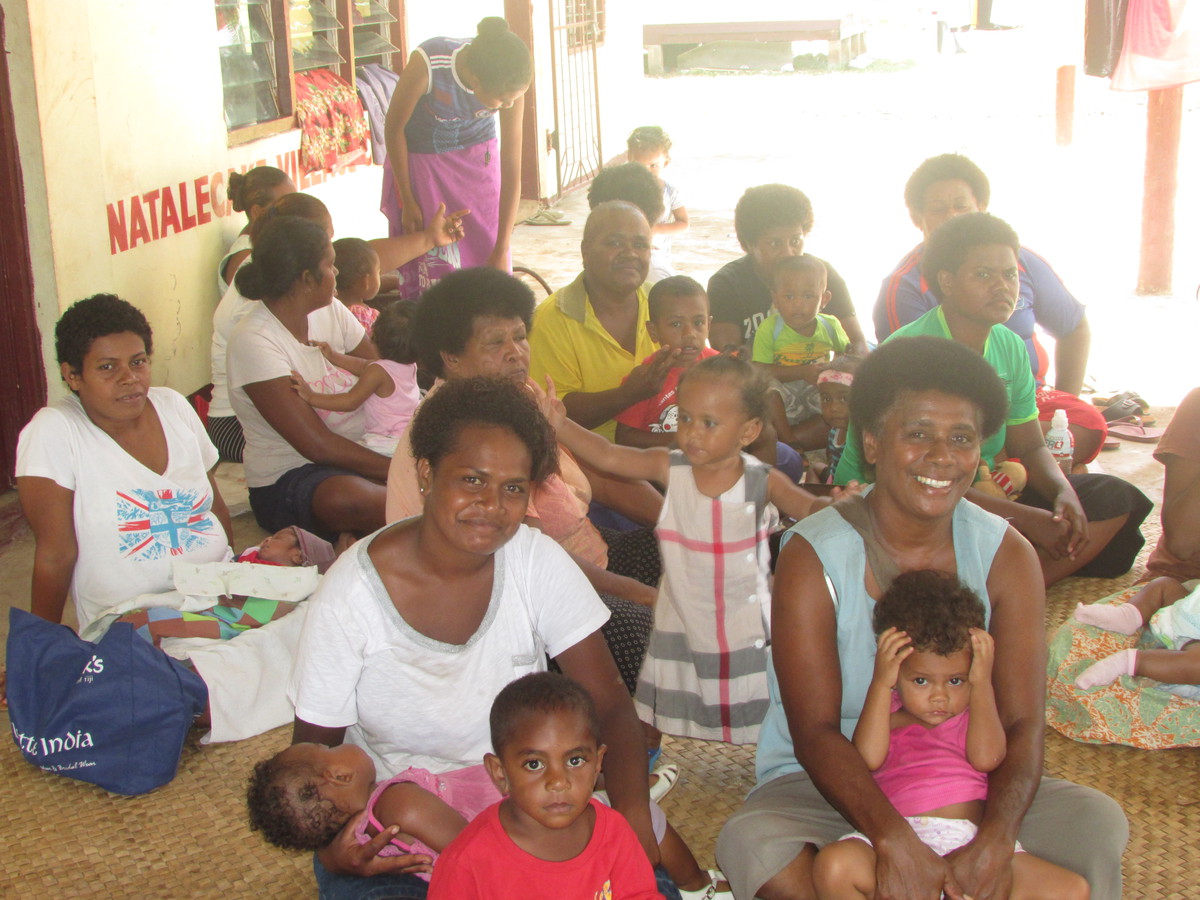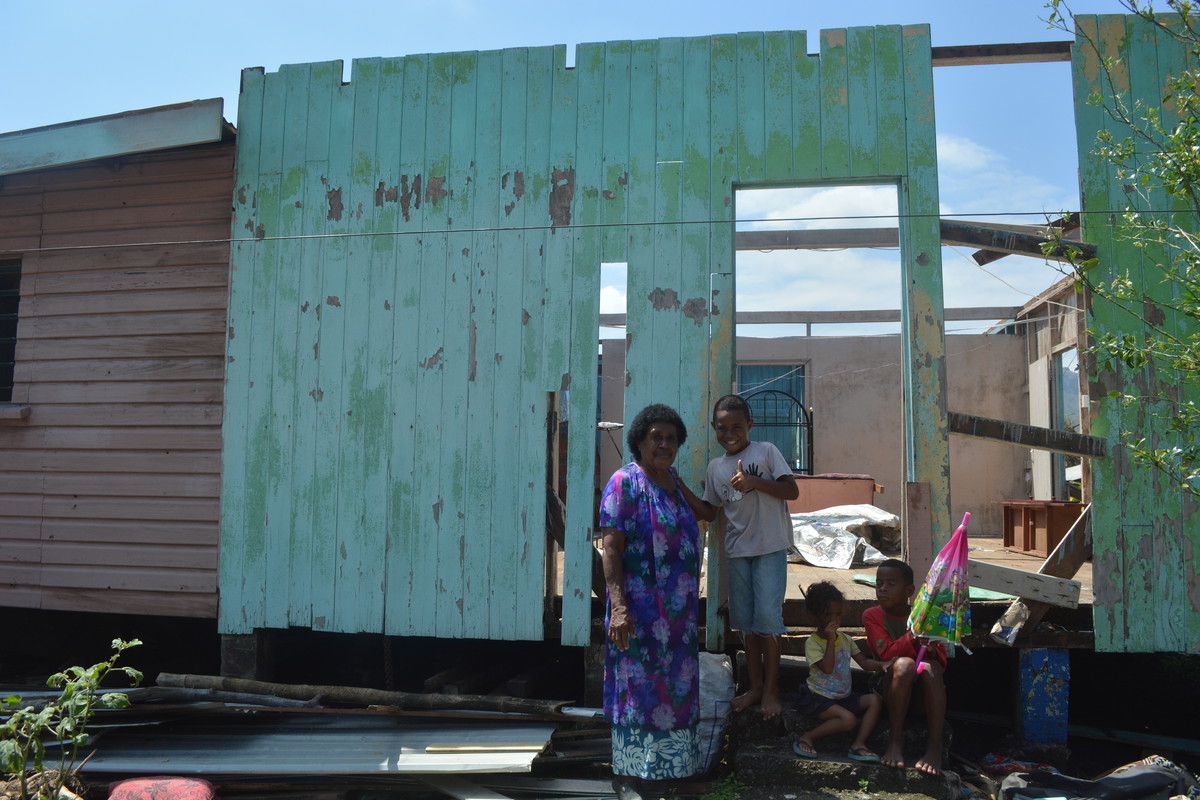
Spotlight
A selection of news from across the Federation

IPPF Statement on the 68th session of the Commission on the Status of Women (CSW)
IPPF welcomes the agreed conclusions of the 68th session of the Commission on the Status of Women (CSW), on the theme of “Accelerating the achievement of gender equality and the empowerment of all women and girls by addressing poverty and strengthening institutions and financing with a gender perspective”. IPPF actively engaged in the process by providing technical inputs to Member States, raising awareness about the interlinkages between SRHR, poverty, gender equality and the empowerment and human rights of all women and girls.
Filter our news by:


| 28 March 2022
Kenyan High Court makes landmark ruling on safe abortion care
In a landmark verdict today, the High Court of Malindi has ruled that safe abortion care is a fundamental right under the Constitution of Kenya and that arbitrary arrests and prosecution of patients and healthcare providers, for seeking or offering such services, is completely illegal. Specifically, the Court ruled that: Abortion care is a fundamental right under the Constitution of Kenya and that arbitrary arrests and prosecution of patients and healthcare providers seeking or offering such services is illegal. Protecting access to abortion impacts vital Constitutional values, including dignity, autonomy, equality, and bodily integrity. Criminalizing abortion under Penal Code without Constitutional statutory framework is an impairment to the enjoyment of women’s reproductive right. For years, women and girls in Kenya have faced sustained and pervasive discrimination hampering their access to seeking reproductive healthcare services; the 1963 Penal Code criminalizes all abortion care, including those allowed under the Constitution 2010, which guarantees the right to healthcare, including access to reproductive health services. The Constitution only permits safe abortion if in the opinion of a trained health professional, there is need for emergency treatment, or the life or health of the mother is at risk/in danger. The court case in question, filed in November 2020, involved PAK, a minor 16 years of age from Kilifi County. PAK experienced complications during pregnancy and immediately sought medical care at a nearby clinic where a trained clinical officer attended to her. Upon examining her, the clinical officer determined that she had lost the pregnancy and proceeded to provide her with essential and life-saving post-abortion care. Policy officers stormed the clinic, in the midst of the treatment, stopping the medical procedure and confiscating PAK’s treatment records. They then proceeded to illegally arrest both PAK and the clinical officer. Both were taken to Ganze Police Patrol Base where PAK was not allowed to access further medical care for the next two days and was forced to sign a statement which was contrary to PAK’s description of the events. The police also forced PAK to undergo another detailed medical examination at Kilifi County Hospital to obtain evidence to prove the alleged offence of abortion. The clinical officer was detained for one week while PAK was remanded to a juvenile remand for more than a month, whilst she and her family sought to secure the cash bail for her release. The Malindi High Court has further directed the Parliament to enact an abortion law and public policy framework that aligns with the Kenyan Constitution. Additionally, the Court has confirmed that communication between a patient and the healthcare provider is confidential, which is guaranteed and protected under the Constitution and other enabling laws, save for where the disclosure is consented to by the patient or is in the public interest in line with the limitations as provided for in the Constitution. In its decision, the Court also ruled that PAK was recovering from medical procedure and police did not have the medical qualifications to determine and confirm that she was medically-fit to leave the clinic, regardless of her admission status at the clinic. Additionally, the Court found that PAK’s arrest was inhuman and degrading, and being a minor, she ought not to have been interrogated without legal representation. Marie-Evelyne Petrus-Barry, Africa Regional Director from the International Planned Parenthood Federation, said: “We are absolutely delighted to hear this news and applaud the High Court of Malindi's ruling confirming that abortion care is a fundamental right under the Constitution of Kenya and that arbitrary arrests and prosecution of patients and healthcare providers for seeking or offering such services is illegal. We are also very pleased to hear that the Court has directed Parliament to enact an abortion law and public policy framework that aligns with the Constitution. This is a victory for women and girls not only in Kenya, but across Africa! Access to quality abortion is essential to guarantee the health and reproductive rights of women and girls everywhere. At IPPF, we are committed to reducing the number of deaths of women and girls who are forced to turn to unsafe abortion methods for fear of arrests and harassment. We will continue to supply and support safe and legal abortion services and care for women and girls everywhere.” The petitioners were represented by the Center for Reproductive Rights a network of reproductive health providers whose member was the second petitioner in this case and a collaborative partner of IPPF. The advocates were Martin Onyango, Head of Legal Strategies for Africa, and Prudence Mutiso, Legal Advisor for Africa. Nelly Munyasia, Executive Director of Reproductive Health Network Kenya (RHNK), , welcomed the court’s decision: “Many qualified reproductive healthcare practitioners continue to be arrested, detained, and prosecuted for providing legal medical care. The court’s decision confirms that prosecution against health providers cannot hold where the prosecution has not established that; the health professional in question was unqualified to conduct the procedure; the life or health of the woman was not in danger or the woman was not in need of emergency treatment,” Ms. Munyasia said. Evelyne Opondo, Senior Regional Director for Africa at Center for Reproductive Rights said: “Today’s victory is for all women, girls, and healthcare providers who have been treated as criminals for seeking and providing abortion care. The court has vindicated our position by affirming that forcing a woman to carry an unwanted pregnancy to term or to seek out an unsafe abortion is a gross violation of her rights to privacy and bodily autonomy. Further, the continued restrictive abortion laws inhibit quality improvement possible to protect women with unintended pregnancies.” Center fact sheet: “The Impact of the Misalignment Between Kenya’s Constitution and the Penal Code on Access to Reproductive Health Care”

| 20 July 2016
End gender based violence and HIV to ensure equity
18 July, Durban: Gender Based Violence (GBV) must be recognised and addressed if we are to end HIV and AIDS urged the International Planned Parenthood Federation (IPPF) and the United Nations Entity for Gender Equality and the Empowerment of Women (UN Women) at a panel during the International AIDS Conference Monday. The impact of HIV among women and girls in all their diversity is significant and alarming. Women’s greater physical vulnerability to HIV is compounded by social norms, gender inequalities, poverty and violence. Women living with HIV are also more likely to face stigmatisation, infertility, and even abuse and abandonment, contributing to their disempowerment. In East and Southern Africa, the risk of HIV among women who have experienced violence maybe three times higher In Uganda and South Africa studies found women who experienced intimate partner violence were 50 per cent more likely to have HIV than women who had not experienced violence. In many countries in Africa, getting married is among the ‘riskiest’ behaviour for women, where they may be exposed to unprotected sex with a husband who has multiple sexual partners, and to underlying power dynamics between men and women that prevent women from accessing condoms and then insisting on their use. Julia Omondi, a 24 year old advocate from Family Health Options Kenya (FHOK) highlighted the most common root causes of gender based violence and HIV, ‘I work with a group of 50 young girls like myself, called the 3E advocates to prevent girls from child marriage; support girls who are living with HIV to understand their rights, make parents and communities aware of the laws that protect girls from child marriage. We need to raise our voices to stop child marriage and turn the tide against HIV’. “Empowerment + Engagement = Equality” is a joint project supported by UN Women and IPPF implemented in Kenya, Malawi and Uganda to address HIV vulnerability among adolescent girls and young women by engaging and empowering them. Traditional leaders like the senior chief Theresa Kachindamoto from Malawi spoke of her role to change harmful gender related practices, she said, ‘Chiefs as custodians of culture should be at the forefront to end cultural practices that negatively affect people’s health like sexual cleansing (Fisi), chief blanket. My village is now a model for others and my fellow chiefs come to learn about the change I have brought to Dedtza district in Malawi.’ Nazneen Damji, Policy Advisor- gender equality, health and HIV/AIDS at UN Women, highlighted the recognition by global leaders on the importance of addressing GBV and HIV. “Violence, and the fear of violence, can play a major role in women’s reluctance to know her HIV status and seek care. Fortunately, the Political Declaration on HIV/AIDS adopted in June at the UN General Assembly and the Resolution on women, the girl child and HIV adopted at the 60th Session of the Commission on the Status of Women both call on governments to intensify efforts to end all forms of violence against women and girls, including harmful practices that contribute to the spread of HIV amongst women and girls” ‘Civil society organisations like IPPF play an important part in holding governments accountable. We shouldn’t underestimate our role as advocates to inform national, regional and global policies. If we are to address the dual epidemics of GBV and HIV we need to have progressive polices where perpetrators can be brought to justice and laws and policies uphold gender equality’ said Zelda Nhlabatsi, the executive director of Family Life Association of Swaziland (FLAS). The session was sponsored by IPPF Africa Region, UN Women and the Ford Foundation.

| 22 March 2016
Emergency update from Fiji
One month on from Cyclone Winston, IPPF has helped hundreds of families, including new mothers and pregnant women. Thousands of people are disaplaced and 43 have now been confirmed dead in the worst tropical super-storm to have ever hit the Pacific. IPPF’s humanitarian wing, the SPRINT Initiative, is solely funded by the Australian Government to provide life-saving sexual and reproductive health services following a humanitarian crisis. The Australian Government provided an additional AUD $100,000 to ensure SPRINT could respond to the worst affected populations. IPPF’s assistance includes distributing hygiene and dignity kits to pregnant women and new mothers, providing maternal and neonatal healthcare, providing family planning and prevention programs to reduce the spread of sexually transmitted infections, including HIV. There has been an urgent need to respond to the immediate sexual and reproductive health needs of communities, specifically vulnerable groups such as pregnant and lactating women and women & girls at risk of gender-based violence. In crisis settings rates of gender-based violence drastically increase, and SPRINT has provided survivors with emergency care and services. IPPF-SPRINT has reproductive health missions in the provinces of Nataleira, Natalecake, Vadravadra. The Ministry of Health, under the Fiji Government, has also committed their medical staff to IPPF's medical camps. A key partner to the humanitarian repsonse is IPPF's local member association, the Reproductive and Family Health Association of Fiji (RFHAF). The Australian Minister for Foreign Affairs, the Honourable Julie Bishop paid a visit to IPPF-SPRINT’s SRH mission in early March to observe the work of the Australian-funded response. The Minister also distributed hygiene kits to the affected population in Rakiraki hospital in western Fiji. Apart from providing key sexual reproductive services, IPPF-SPRINT is also providing basic medical assistance to those affected.

| 26 February 2016
“I have never experienced such a strong cyclone in my 77 years of life.”
“I have never experienced such a strong cyclone in my 77 years of life.” Jokaveti Bavou lives in the village of Drauniivi, in the Fijian province of Ra. It was right in the path of Cyclone Winston, the strongest storm to ever strike the Southern Hemisphere. A week on from the disaster, Jokaveti, her son Jim and her grandchildren are safe. But there is no longer a roof on her house, and precious little left inside. In a village of 910 people, 75 houses were completed destroyed and about 65 damaged. Jokaveti was in her house with her grandchildren when Cyclone Winston arrived. “On Saturday night the winds started to increase. I told Jim that I was not sure of the house; I didn’t believe that it would be able to keep us safe. I told him that if the house started to collapse, we would run to his house for safety.” “The wind was getting stronger and when I looked at the back door, it had blown open. I took a hammer and nail to it. But when I got back to the other room, the main door had blown open and the wind was really strong. Then the wind took the roof off my house.” “I told my granddaughter that everything was terrifying and we needed to go and hide somewhere. It was not safe to be in the house because of the flying debris.” “I got out and my son called out from his house and told us that we should go and hide underneath our house. He tried to come out of his house to save us, but the wind was so strong and roofing iron was flying around.” “I went underneath my house with my grandchildren holding a lamp and stayed there until the wind died. My son’s eyes never left us. Luckily for us a corrugated roofing iron flew and covered where we were hiding. I just cried and continued to thank God for keeping us safe.” “I could sense fear from all of us including my grandchildren. They were crying too. My son kept on calling to check on us until the wind died down.” Miraculously, no-one from Jokaveti’s family or the village was killed or seriously injured. IPPF is establishing centers in the Northern and Western parts of Fiji to provide medical services, especially those that deal with maternal and child health and sexual and reproductive health. It is working closely with the Reproductive and Family Health Association of Fiji (IPPF’s member in Fiji), UNFPA Pacific, Empower Pacific, Fiji’s Ministry of Health and Medical Services. Donate now!














